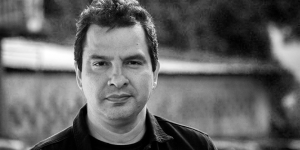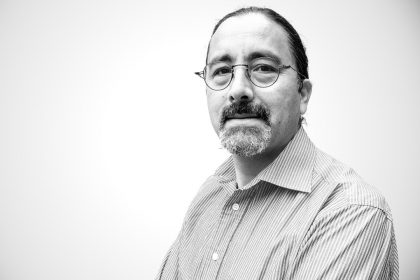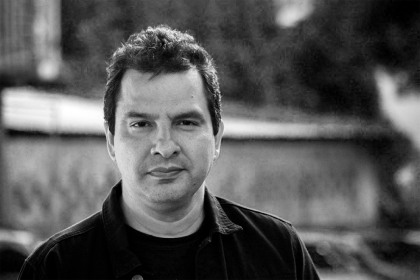ABOUT THE AUTHOR:

Rafael Uzcátegui
Sociologist and freelance editor. He is currently the General Coordinator of Provea.
Rafael Uzcátegui │ When the institutional crisis reached its zenith in January 2019, broad sectors of the population supported the three-step strategy promoted by the National Assembly board of directors for the resolution of the conflict. However, that important synergy reinforced a curious idea about what “unity” meant, the kind of unity in which all people should think and act in the same way.
After this path proved ineffective and the opposition fragmented, the effort to recover democracy needs another strategy. One possibility could be strategic dispersion, where different roles are assumed to pressure and weaken authoritarianism from different angles and create again the critical mass necessary to resume expectations of political change in the country.
Indeed, the democratic leadership will not be able to show in the short term the harmony of action that for several months allowed it to confront authoritarianism as a credible threat, garnering support from the international community. The strategy of attrition and separation against it has been successful so far. However, this does not mean that the momentum for Venezuela to return to democracy, inclusion and respect for human rights has stopped. The rest of the sectors and organizations in the country continue working on it.
To maintain these initiatives, among other things, we must learn the hard lessons of the strategy of the ruling group against political parties, so that when they are applied to the rest of society, we will be able to respond differently.
What we know as civil society, which includes among others the media and business people, is structurally heterogeneous. And if this diversity is undeniable and a principle of any democratic society, we must learn to deal with otherness, with those who are different from us and do not have the same interests and affinities. Frustration over the deepening crisis seems to have made us forget the obvious.
So, the first thing that must be cared for, preserved and cultivated, amid drizzles and storms, is the idea that all of us who face the dictatorship, despite natural differences, are part of a democratic community. This notion will try to be destroyed to divide us into as many spaces as possible. The second is that this community has as many roles as the sectors that comprise it. It will have to be said a thousand times: differentiated roles united by the same aspiration: building a country where all possibilities fit.
The role of each sector, and its inherent objectives, has been defined by each one. If these goals are not met or the activities that aspire to achieve them are not carried out, the role disappears. Citing a recent case as an example, an entrepreneur who does not create wealth ceases to be what he is, an entrepreneur. If his objective is to increase his production levels, any effort to do so under the law is legitimate in itself. The greater the financial and managerial capabilities of a businessman, the more useful he will be for the democratic reconstruction of the country, not the other way around.
A second dimension of the roles, other than the objectives that have been set for their action, is the culture or institutional tone used to achieve them. In the Venezuelan context, this can range from minimum to maximum confrontation with the authorities, or actions from the sidelines or the cracks left open by the totalitarian appetite. The only possible delegitimization happens if a specific action is not achieving the intended objectives and yet we insist on ratifying it.
Finally, a comment on moral judgments, so frequent in the stridency of social media. Absolute “purity” in our country does not exist. Repeating that one or another strategy, by itself, “legitimizes” the de facto government is not only a sterile discussion but also leads us to stagnation.
The only absolute purity possible is that of a sect that avoids political action – which will always involve interacting with people different from you – in order not to contaminate itself. Who benefits from the purge of the -false- moral crusade? Precisely separation and attrition, the two main paths of authoritarianism to stay infinitely in power.
These lines are written by a person who never voted for Chavismo and was one of its critics early on in 1998. But these credentials only serve for intellectual onanism, not to increase the efficacy of the urgent and necessary recovery of the country.
Do the inmates of a prison “legitimize” their jailers by establishing communication channels with them? They do so based on a factual situation: The jailers have control over the territory they occupy and their own bodies. Will they stop calling them jailers? They will make this decision based on what you hope to achieve with each specific effort. Are there risks in strategic dispersion? Yes, all of them. The only guarantee is that by acting differently we will not obtain the same results achieved so far. To maintain “purity” it is only necessary to do nothing. The Venezuelan drama is so deep that it demands us to be generous enough to honestly hope that any of the possible strategies, especially one with which we disagree, can allow our migrants to have the democratic and economic conditions to return to their country.
After the majority of the population lined up behind the so-called “three steps matra”, strategic dispersion could make more sense today: Pressuring ignominy from different points and from different roles in a coordinated way, identifying the opportunities for joint offensives that can weaken authoritarianism. It is not the fast track, but it is the one that allows us to survive as a political community, in the broad sense, and recover the capabilities to once again be a credible threat to the dark side.
Translated by José Rafael Medina
ABOUT THE AUTHOR:

Rafael Uzcátegui
Sociologist and freelance editor. He is currently the General Coordinator of Provea.


